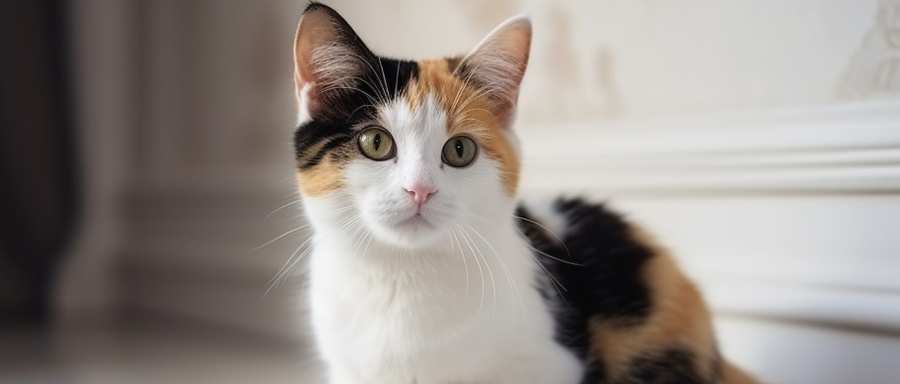Eggs can be a nutritious treat for cats, but they must be prepared correctly to avoid any potential toxicity.
Cats are curious creatures, often exploring the world around them with their inquisitive nature. As a cat owner, it’s common to wonder about the safety of certain foods, especially when it comes to human food. One such food that often comes into question is eggs. The question “Are Eggs Toxic To Cats?” has sparked debates among pet owners and veterinarians alike. Understanding the nutritional value of eggs and how they can affect feline health is crucial.
Nutritional Benefits of Eggs for Cats
Eggs are a powerhouse of nutrition. They are rich in protein, essential fatty acids, vitamins, and minerals. A single large egg contains approximately 6 grams of protein, which is beneficial for muscle development and overall health in cats. Additionally, eggs provide:
- Vitamin A: Important for vision and immune function.
- B Vitamins: Vital for energy metabolism and maintaining a healthy nervous system.
- Selenium: An antioxidant that protects cells from damage.
For cats that enjoy a varied diet, eggs can serve as an excellent source of nutrition. However, moderation is key. Too much protein can lead to kidney strain over time, especially in older cats.
Potential Risks of Feeding Eggs to Cats
While eggs have numerous benefits, there are potential risks associated with feeding them to cats. The primary concerns revolve around:
1. Salmonella: Raw eggs can carry harmful bacteria like Salmonella that can lead to food poisoning in both cats and humans. Symptoms may include vomiting, diarrhea, and lethargy.
2. Avidin: This protein found in raw egg whites can bind biotin (a B vitamin) and prevent its absorption. Biotin is essential for skin health and metabolism. Cooking the egg denatures avidin, making it safe for consumption.
3. Allergies: Some cats may develop allergies or sensitivities to eggs, leading to gastrointestinal upset or skin issues.
To mitigate these risks, it’s advisable to cook the eggs before offering them to cats.
How to Safely Prepare Eggs for Cats
Cooking eggs is straightforward and ensures safety while retaining most of their nutritional benefits. Here’s how to prepare eggs for feline friends:
- Boiling: Boil the egg until both the white and yolk are firm. Once cooled, chop it into small pieces.
- Scrambling: Scramble an egg without adding any milk or seasoning. Cook until fully set.
- Poaching: Poach an egg gently; ensure it’s fully cooked through before serving.
It’s essential not to add any spices or oils as these can upset a cat’s stomach or even be toxic.
Portion Control
When introducing eggs into a cat’s diet, portion control is crucial. A small piece of cooked egg once a week can be a delightful treat without overloading their system with protein or calories.
Signs Your Cat Might Be Allergic or Intolerant
After introducing eggs into your cat’s diet, watch for signs of allergies or intolerances:
- Vomiting
- Diarrhea
- Itchy skin
- Excessive grooming
- Changes in behavior
If any of these symptoms occur after feeding your cat eggs, it’s best to discontinue feeding them immediately and consult with a veterinarian.
Alternative Protein Sources for Cats
While eggs are a great source of protein, they aren’t the only option available for feline nutrition. Here are some alternatives:
| Protein Source | Benefits |
|---|---|
| Chicken | Lean meat that’s easily digestible |
| Fish | Rich in omega-3 fatty acids |
| Turkey | Low-fat alternative high in protein |
| Beef | Provides iron and zinc |
| Rabbit | Novel protein source good for sensitive cats |
Incorporating various protein sources helps maintain balanced nutrition while keeping meals interesting for your cat.
Consulting with Your Veterinarian
Before making significant changes to a cat’s diet—especially regarding human foods—consulting with a veterinarian is always wise. They can provide tailored advice based on your cat’s specific health needs and dietary requirements.
Veterinarians often recommend commercial cat foods formulated to meet all nutritional needs rather than relying solely on human food sources like eggs.
The Role of Treats in Feline Diets
Treats should make up no more than 10% of a cat’s daily caloric intake. This includes any human food offered alongside commercial cat food. Keeping treats like cooked eggs occasional helps prevent obesity while ensuring that cats receive balanced nutrition from their main diet.
Conclusion – Are Eggs Toxic To Cats?
In summary, “Are Eggs Toxic To Cats?” isn’t as straightforward as it may seem at first glance. While raw eggs pose risks due to bacteria like Salmonella and the presence of avidin in egg whites, cooking eliminates these dangers significantly. When prepared properly—boiled or scrambled without additives—eggs can be a nutritious treat packed with protein and essential nutrients.
As with any dietary change or addition, moderation is key; observing your cat’s reaction after introducing new foods ensures their health remains paramount. Consulting with veterinarians provides peace of mind when navigating feline nutrition choices.
By understanding both the benefits and risks associated with feeding your feline friend eggs—and other human foods—you can make informed decisions that contribute positively to their overall well-being.

